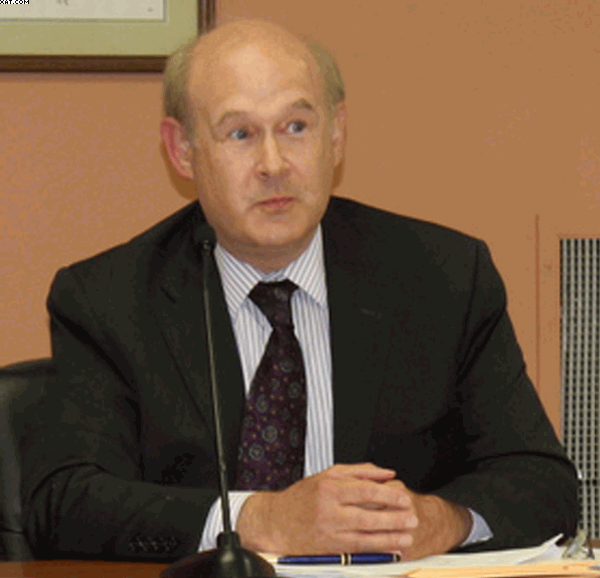McHenry Co. (ECWd) –
 While much attention has been devoted by the local media to the legal bills of the Algonquin Township Road District, little has been shared regarding the actual Township legal bills and what is causing James Kelly’s bills to be almost equal to the Road District in 2018.
While much attention has been devoted by the local media to the legal bills of the Algonquin Township Road District, little has been shared regarding the actual Township legal bills and what is causing James Kelly’s bills to be almost equal to the Road District in 2018.
Since May of 2017 through the end of 2018, according to the provided records, James Kelly has billed the Township $180,747.85. Kelly’s 2018 billing totaled $146,007.60, only $3,992.40 shy of the Road District legal budget of $150,000.00 that has been an obsession of the local press. A review of the legal invoices can be found here and here.
It should be noted that there are additional separate legal bills for the Clerks’ attorney and Bob Miller’s attorney. Records for the other attorney’s billing that we have obtained do not include all of 2018. What we do have, at this link, reflect an additional $129,899.66 in legal bills the Township has incurred. That would bring their total legal bill expenditure, excluding any billing since May 1, 2018, for the other attorneys, to a whopping $310,647.51.
Keep in mind the Road District was involved in a collective bargaining case with Union 150, which was the primary contributor to their legal bills to date. Considering the Township is not a party to the Union 150 case, is it out of line to ask why the Township Trustees are approving legal bills for James Kelly to review pleadings in a case that has nothing to do with the Township? Or a better question, why would an attorney bill a client for reviewing pleadings that have nothing to do with his clients?
We have requested the other attorney billings for the balance of 2018 and will update the article when we receive those. We suspect the Township’s total legal expenditures for 2018 will far exceed that of the Road District, even though they are not a party to the Union 150 case.
Of additional interest is the billing pertaining to the Freedom of Information Act matters the Township is dealing with. It is pretty clear the elected officials, specifically the Township Clerk Karen Lukasik and the Supervisor, Charles Lutzow, have delegated their FOIA obligations to the attorney, James Kelly.
According to billing, Kelly is charging the Township for receipt of FOIA’s, review of FOIA request, drafting responses to FOIA requests.
According to the Open Meetings Act, the FOIA Officer and the Public Body are the designated people to receive FOIA requests and respond to them. The law also outlines the FOIA officer is required to be an official or employee designated by the governing board. In the case of Algonquin Township, Lukasik refused to perform the duties of FOIA officer even though she was appointed by the Board. Currently the Supervisor, Charles Lutzow is the designated FOIA officer.
(5 ILCS 140/3.5)
Sec. 3.5. Freedom of Information officers.
(a) Each public body shall designate one or more officials or employees to act as its Freedom of Information officer or officers. Except in instances when records are furnished immediately, Freedom of Information officers, or their designees, shall receive requests submitted to the public body under this Act, ensure that the public body responds to requests in a timely fashion, and issue responses under this Act. Freedom of Information officers shall develop a list of documents or categories of records that the public body shall immediately disclose upon request.
If Lutzow and Lukasik were to simply do their job and respond to FOIA requests, a vast majority of their legal bills would be reduced. We have not found any legal bills from the Road District attorney for receiving, reviewing, and responding to FOIA, which indicates a non-lawyer is fully capable of responding to FOIA’s if properly trained, a requirement by the law. The only purpose for a lawyer to be involved in an FOIA request is to give legal advice pertaining to that law. It appears with Kelly’s billing, he is doing a whole lot more than just advising his client.
Why should the public pay a salary for a Clerk, the keeper of the records, and a Supervisor and then also pay an attorney to perform the very functions they were elected to perform and mandated by law to perform?
While some will point to the requesters as the problem, they should realize there are other Townships that receive FOIA’s as well and they respond to them without spending money on attorneys. In fact, in Plainfield Township, not only have they managed to take care of their own FOIA’s, they just provided records that were found and not included in requests from November. Had they not provided those records I would have never known they existed, and rather than hiding or ignoring FOIA, they went the extra mile to comply.
The FOIA revolving door for attorneys
We have a specific record we requested which resulted in the Attorney responding to our FOIA request and claimed the record does not exist. However, this same attorney, in court filings, confirms he was the one that created the very record we were seeking. So by improperly denying the existence of the record, it opens up the door for a lawsuit of which the lawyer gets to once again charge the Township. In this case, he gets to defend the denial of a record he has now told the courts he created and denied its existence.
We confirmed there was no authorization from the Downstate Local Records Commission to destroy the records requested. So if there is no permission to destroy it, why would the person who created it, the Township Attorney, deny it’s existence?
Stay tuned for future updates as our FOIA case against the Township moves through the courts.
.








1 Comment
Dave
Posted at 15:50h, 18 JanuaryWow, you just can’t make this stuff up!